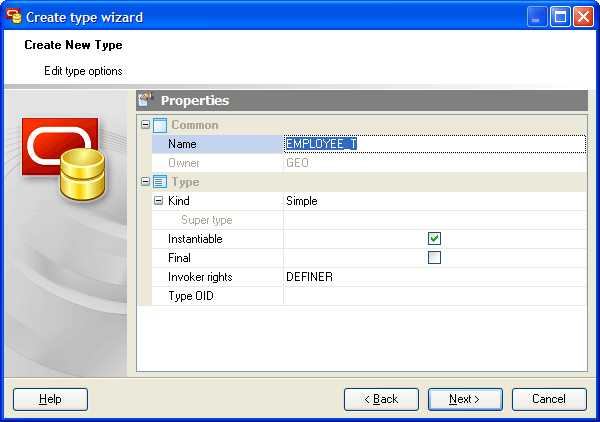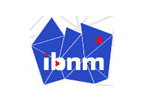Oracle Maestro online help
| Prev | Return to chapter overview | Next |
Specifying type properties
Specify type options according to your needs. The detailed description is given below.

Owner
Defines the owner of the new type.
Instantiable
Use the Instantiable clause to indicate whether any object instances of this type can be constructed. Check to set that object instances of this type can be constructed. Otherwise, no default or user-defined constructor exists for this object type. You must specify these keywords for any type with Noninstantiable methods and for any type that has no attributes, either inherited or specified in this statement.
Final
At the top level of the syntax, these clauses specify the inheritance attributes of the type. Use the Final clause to indicate whether any further subtypes can be created for this type. Check the option if no further subtypes can be created for this type.
Invoker rights
The option lets you to specify whether the member functions and procedures of the object type execute with the privileges and in the schema of the user who owns the object type or with the privileges and in the schema of CURRENT_USER. This specification applies to the corresponding type body as well.
This clause also determines how Oracle Database resolves external names in queries, DML operations, and dynamic SQL statements in the member functions and procedures of the type.
Type OID
The OID clause is useful for establishing type equivalence of identical objects in more than one database.
| Prev | Return to chapter overview | Next |





 Download
Download Buy
Buy
